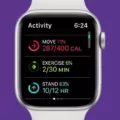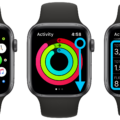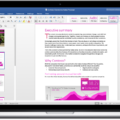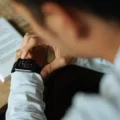The Apple Watch is a smartwatch that incorporates fitness tracking and health-oriented features, released by Apple Inc. in April 2015. The device is available in four different variants, the Watch Sport, Watch, Watch Edition, and Hermès. The Watch Sport is the least expensive model, while the Watch Edition is the most expensive.
One of the key features of the Apple Watch is its heart rate sensor, whih uses infrared LEDs and photodiodes to detect your heart rate. The sensor can also be used to detect when your heart rate spikes, which may indicate an underlying health condition. In this article, we’ll take a closer look at how the Apple Watch’s heart rate sensor works, and how it can help you stay healthy.
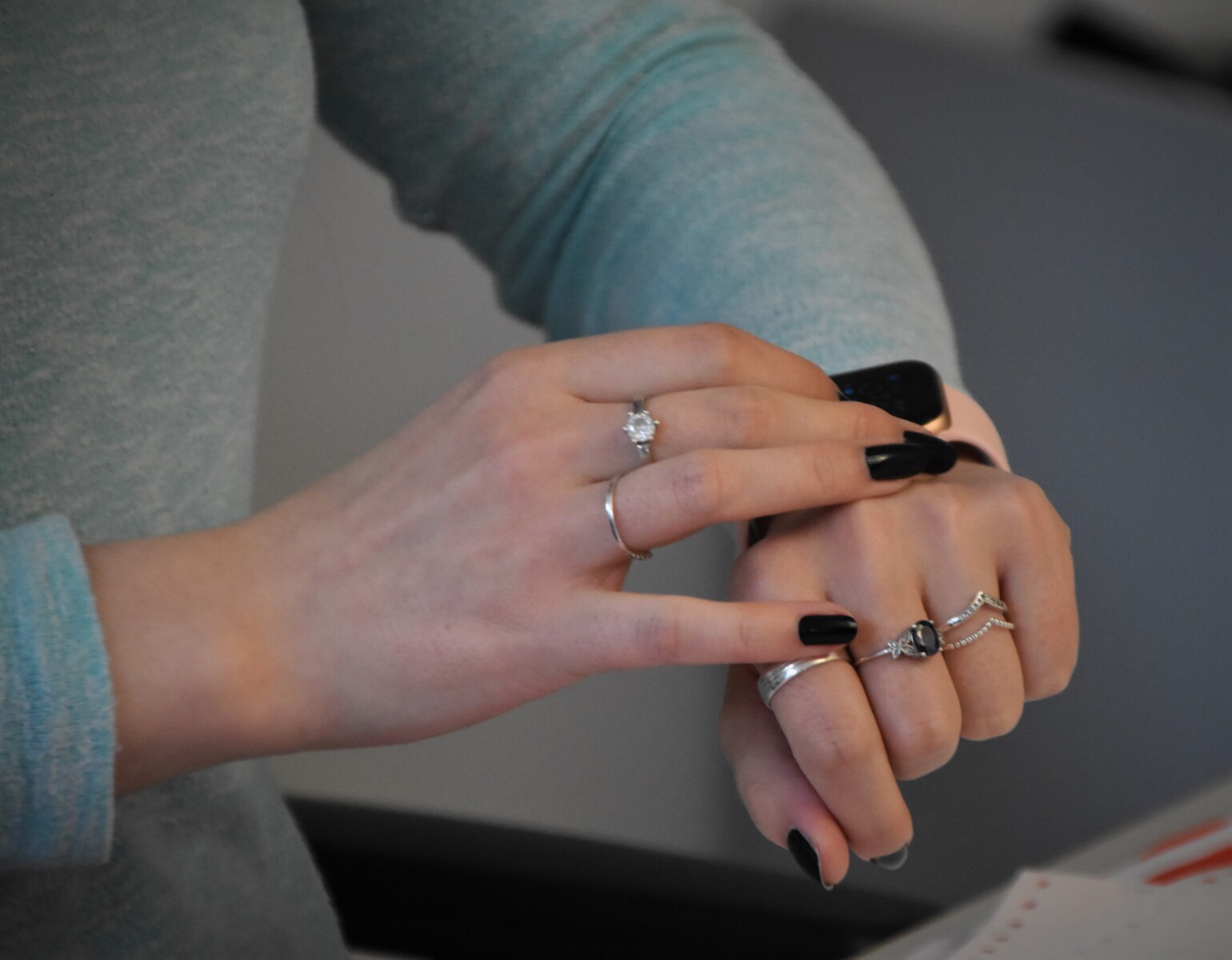
Does Apple Watch Give False High Heart Rate?
There have been reports of the Apple Watch giving false high heart rate readings, but it is unclear if this is a widespread issue or not. It is possible that the Watch is not accurately reading heart rate data if it is not worn properly (e.g. too loose or too tight), so it is important to make sure that the Watch is fitted correctly beore relying on its readings.
Why Does My Heart Rate Fluctuate So Much On My Apple Watch?
There are a few reasons why your heart rate may fluctuate on your Apple Watch. First, it’s important to remember that your heart rate is not always accurate. It may be affected by factors like stress, anxiety, caffeine, and medications. Additionally, the irregular rhythm notification feature on your Apple Watch will occasionally look at your heartbeat to check for an irregular rhythm that may be AFib. This uually happens when you’re still to ensure a more accurate reading. If you’re concerned about your heart rate, we recommend talking to your doctor.
Why Does My Heart Rate Monitor Spikes?
There are a few potential reasons for why your heart rate monitor may be spiking. One possibility is that you are wearing the monitor too tight, which can cause inaccurate readings. Another possibility is that the batteries in the monitor are low, which can also lead to inaccurate readings. Finally, it is also possible that the monitor itself is malfunctioning. If you are concerned about your heart rate spikes, we recommend consulting with a doctor or medical professional.
Is It Normal To Have Heart Rate Spikes Throughout The Day?
Yes, it is normal to have heart rate spikes thrughout the day. Our heart rate adapts to our body’s need for energy throughout the day, whether it’s for walking up the stairs or a bout of strenuous exercise. These tempo changes based on physical activity are perfectly normal.
How Reliable Are Apple Watches For Heart Rate?
Apple Watch heart rate monitors are reasonably accurate, with an overall accuracy rate of about 34%. However, further research is needed to confirm when the Apple Watch heart rate monitor is most useful.
Do Doctors Trust Apple Watch ECG?
Yes, doctors trust Apple Watch ECG. The device has been cleared by the FDA for ECG monitoring and detection of atrial fibrillation. The company has studied this feature in clinical trials and published data demonstrating a reasonable accuracy of the device for detecting atrial fibrillation.
Can Apple Watch Detect Heart Issues?
According to a recent study out of Stanford Medicine, the Apple Watch has the potential to detect heart problems that culd lead to stroke in 8 out of 10 users. The study looked at a feature on the Apple Watch that monitors heart rate and alerted users to irregular heart rhythms. While the study showed promise, researchers cautioned that more research is needed to confirm the findings.
Can Apple Watch Catch Heart Palpitations?
Yes, the Apple Watch can detect heart palpitations. If you thnk you are experiencing heart palpitations, you can use the Apple Watch to record your heart rate and then show it to your physician.
What Is A Dangerously High Heart Rate During Exercise?
If your heart rate is more than 200 beats per minute during exercise, it could be a sign of an impending heart attack or other life-threatening heart problem. You sould seek medical help right away if you experience palpitations, an irregular heart rate, shortness of breath, or chest pain.
What Is An Unsafe Heart Rate?
An unsafe heart rate is one that is consistently aove 100 beats per minute or below 60 beats per minute (and you’re not an athlete), or you’re also experiencing: shortness of breath. fainting spells. lightheadedness or dizziness. feeling fluttering or palpitations in your chest.
Is 225 A High Heart Rate?
Yes, 225 is a high heart rate. While some underlying causes of tachycardia can be life-threatening, not all causes are serious. If you are concerned about your heart rate, you should speak with a doctor.
Why Did My Heart Rate Suddenly Increase For A Few Seconds?
There are a few potential reasons why your heart rate might suddenly increase for a few seconds. One possibility is that you experienced a brief bout of anxiety or stress. This can cause your heart to race as your body releases adrenaline. Exercise can also trigger a sudden increase in heart rate, as your body works harder and needs more oxygen. In some rare cases, a medical condition such as an irregular heartbeat (arrhythmia) can cause heart palpitations. If you’re concerned about your heart rate, it’s alays best to speak with a doctor.
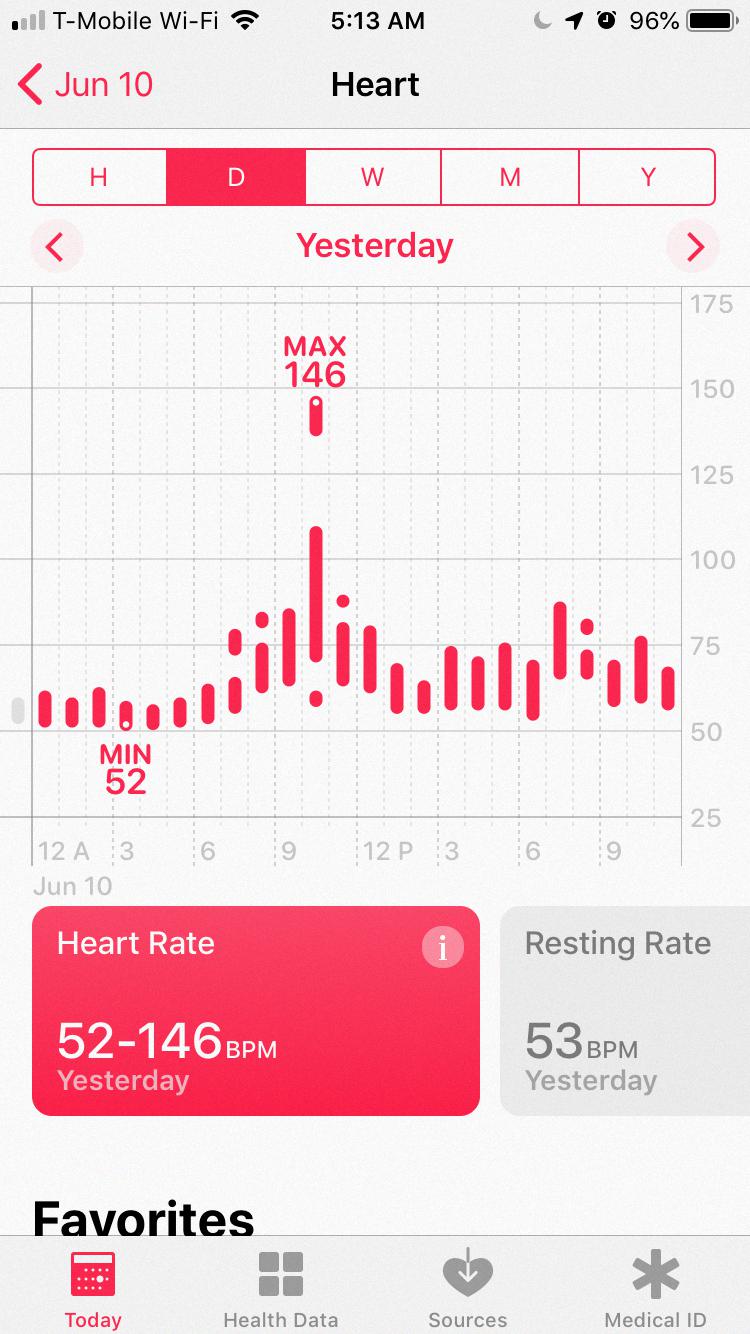
Should I Go To The ER If My Heart Rate Is Over 100?
If you’re sitting down and feeling calm, your heart shouldn’t beat more than abot 100 times per minute. A heartbeat that’s faster than this, also called tachycardia, is a reason to come to the emergency department and get checked out.
Does Blocked Arteries Cause Increased Heart Rate?
When a blocked artery prevents blood from reaching the heart, the heart must work harder to pump blood. This can cause an increased heart rate.
What Is A Good Resting Heart Rate By Age?
A good resting heart rate can vary based on a person’s age. For children 5 to 6 years old, a good resting heart rate would be 75 to 115 beats per minute (bpm). For children 7 to 9 years old, a good resting heart rate would be 70 to 110 bpm. For children 10 years and older, as well as adults, a good resting heart rate would be 60 to 100 bpm. For athletes in top condition, a good resting heart rate can be as low as 40 to 60 bpm.
What Heart Rate Is Too High?
A heart rate that is too high is typically over 100 beats per minute. However, this can vary depending on the individual’s age and fitness levels.
Is Apple Watch Oxygen Accurate?
There is some evidence to suggest that the Apple Watch oxygen sensor is accurate. A study published in the journal “PLoS One” found that the Apple Watch was able to accurately measure oxygen saturation levels in the blood. Another study, published in the “Journal of Telemedicine and Telecare,” also found that the Apple Watch was accurate in measuring oxygen saturation levels.
What Does Atrial Fibrillation Look Like On Apple Watch?
Atrial fibrillation (AFib) is an irregular heart rhythm that can look random when measured on an Apple Watch. When AFib is present, the atria (the upper chambers of the heart) beat very fast and out of sync with the ventricles (the lower chambers of the heart). This can cause symptoms like Heart palpitations, shortness of breath, chest pain, and dizziness. If left untreated, AFib can lead to more serios problems like stroke or heart failure.
Can Apple Watch Give False AFib Reading?
Yes, the Apple Watch can give false atrial fibrillation (AFib) readings. In a study of over 600 participants, the watch was only accurate in identifying AFib 84% of the time. This means that there is a significant chance that the watch may miss some cases of AFib. Additionally, some people who were later diagnosed with AFib had received irregular heart rhythm notices from the watch previously, but only 13% of them did. This suggests that the watch may not be sensitive enough to detect all cases of AFib.
Is Sinus Rhythm Bad For Apple Watch?
No, sinus rhythm is not bad for Apple Watch. In fact, it is considered normal. However, if you receive this reading but are feeling unwell you should always follow up with your doctor.
Will Apple Watch Call 911 If Your Heart Stops?
No, the Apple Watch will not call 911 if your heart stops. The Apple Watch can alert you to high or low heart rates and irregular heart rhythms throgh its notifications feature, but it cannot detect a heart attack or alert someone if your heart stops.
Can Apple Watch Detect Blood Clot?
Yes, the Apple Watch can detect blood clots. The watch has an app called Cardiogram that uses heart rate variability to screen for conditions like atrial fibrillation and sleep apnea. The app also has a feature that can detect blood clots. When the app detects a blood clot, it will alert the user and provide information on how to get medical help.
When Should You Go To The Hospital For Rapid Heart Rate?
If you have a rapid heart rate, or your heart is beating too fast, you should make an appointment to see a health care provider. You should also seek immediae medical help if you have shortness of breath, weakness, dizziness, lightheadedness, fainting or near fainting, and chest pain or discomfort.
How Often Does Apple Watch Check For Irregular Rhythm?
The irregular rhythm notification feature on Apple Watch Series 1 or later will check the user’s heart rhythm in the background for signs of an irregular heart rhythm that appars to be AFib and alerts the user with a notification if an irregular rhythm is detected on five separate occasions.
How Does Heart Arrhythmia Feel?
Heart arrhythmias can feel like a fluttering or racing heart, and may be harmless. However, some heart arrhythmias may cause bothersome — sometimes even life-threatening — signs and symptoms. Heart arrhythmias may feel like a fluttering or racing heart, and may be harmless. However, some heart arrhythmias may cause bothersome — sometimes even life-threatening — signs and symptoms.
Do Heart Palpitations Show On An ECG?
Heart palpitations often show up on an electrocardiogram (ECG). The ECG records the electrical activity of the heart, wich can help doctors detect arrhythmias, or abnormal heart rhythms. In some cases, heart palpitations may be caused by an underlying heart condition, such as a heart valve problem or coronary artery disease. In other cases, they may be caused by factors outside of the heart, such as anxiety or stress.
What If My Heart Rate Is 190 When I Run?
If your heart rate is 190 when you run, you may be at risk for heart disease. This is because your heart is working harder than it should to pump blood through your body. You may also be at risk for oher health problems, such as high blood pressure and stroke.
Why Does My Heart Rate Increase So Quickly While Exercising?
When you exercise, your muscles need more oxygen than they do when they are at rest. This means that your heart rate will increase so that more blood can be pumped to the muscles. The increased blood flow helps to deliver the extra oxygen that the muscles need.
Is 170 A High Heart Rate When Working Out?
A heart rate of 170 would be considered high when working out, as it is close to the maximum heart rate for a 50-year-old man. The maximum heart rate is generally calculated by subtracting your age from 220, but research by Northwestern Medicine in Chicago indicates that this formula is more apropriate for calculating a woman’s maximum heart rate.
Is 120 A Normal Heart Rate?
No, 120 is not a normal heart rate. A normal resting heart rate for an adult is between 60 and 100 BPM. A heart rate of 120 BPM woud be considered high.
What Should A Woman’s Sleeping Heart Rate Be?
It can vary depending on multiple factors. However, a heart rate of between 40 to 50 beats per minute (bpm) is considered an average sleeping heart rate for adults.
Can Your Heart Rate 300 Bpm?
If your heart rate is 300 bpm, this is considered ventricular tachycardia and it is a very dangerous condition that needs to be treated immediately. When the heart beats this fast, the ventricles (the lower pumping chambers of the heart) may not completely fill with blood. This can lead to serious health complications, including stroke or heart attack. If you are experiencing ventricular tachycardia, it is important to seek medical help right away.
What Is The Highest Heart Rate Ever Recorded?
The highest heart rate ever recorded is 480 beats per minute. This was reported by the National Centre for Biotechnology Information (NCBI) in a report on the fastest human rate. They noted that this was for an adult, but no child has been reported to have such a high heart rate. NHS project manager Laura said: “Doctors couldn’t believe he had actually walked in with such a heart rate.
Does Dehydration Cause High Heart Rate?
Yes, dehydration can cause an increase in heart rate. When you are dehydrated, your body has less blood volume, which means your heart has to work harder to circulate the same amount of blood. This can lead to an increased heart rate.
What Is The Best Test To Check For Heart Problems?
There is no one “best” test to check for heart problems. However, some common tests used to assess heart health include electrocardiograms (ECGs), echocardiograms, and stress tests. These tests can help identify problems with the heart’s rhythm or rate, as well as any structural abnormalities.


